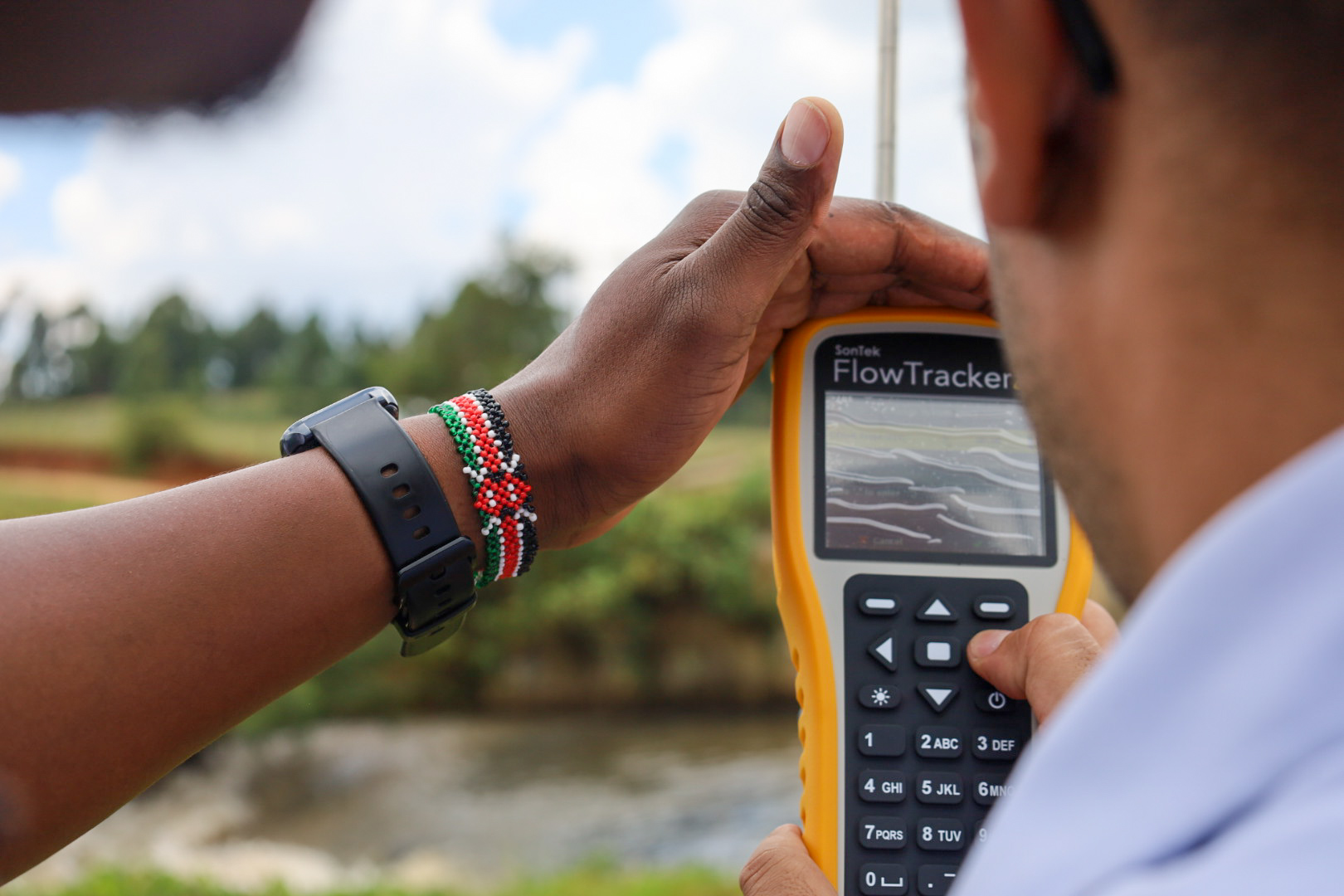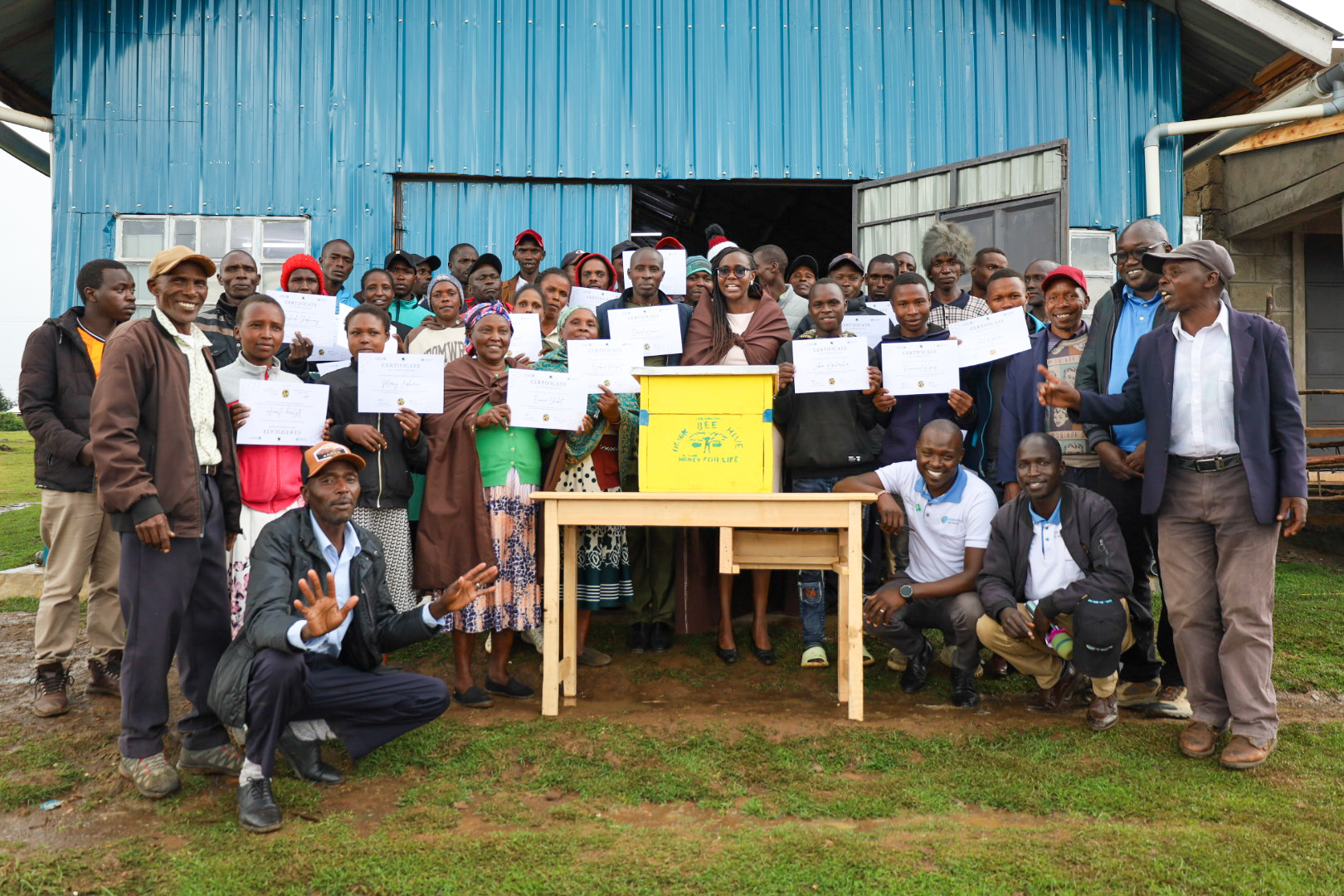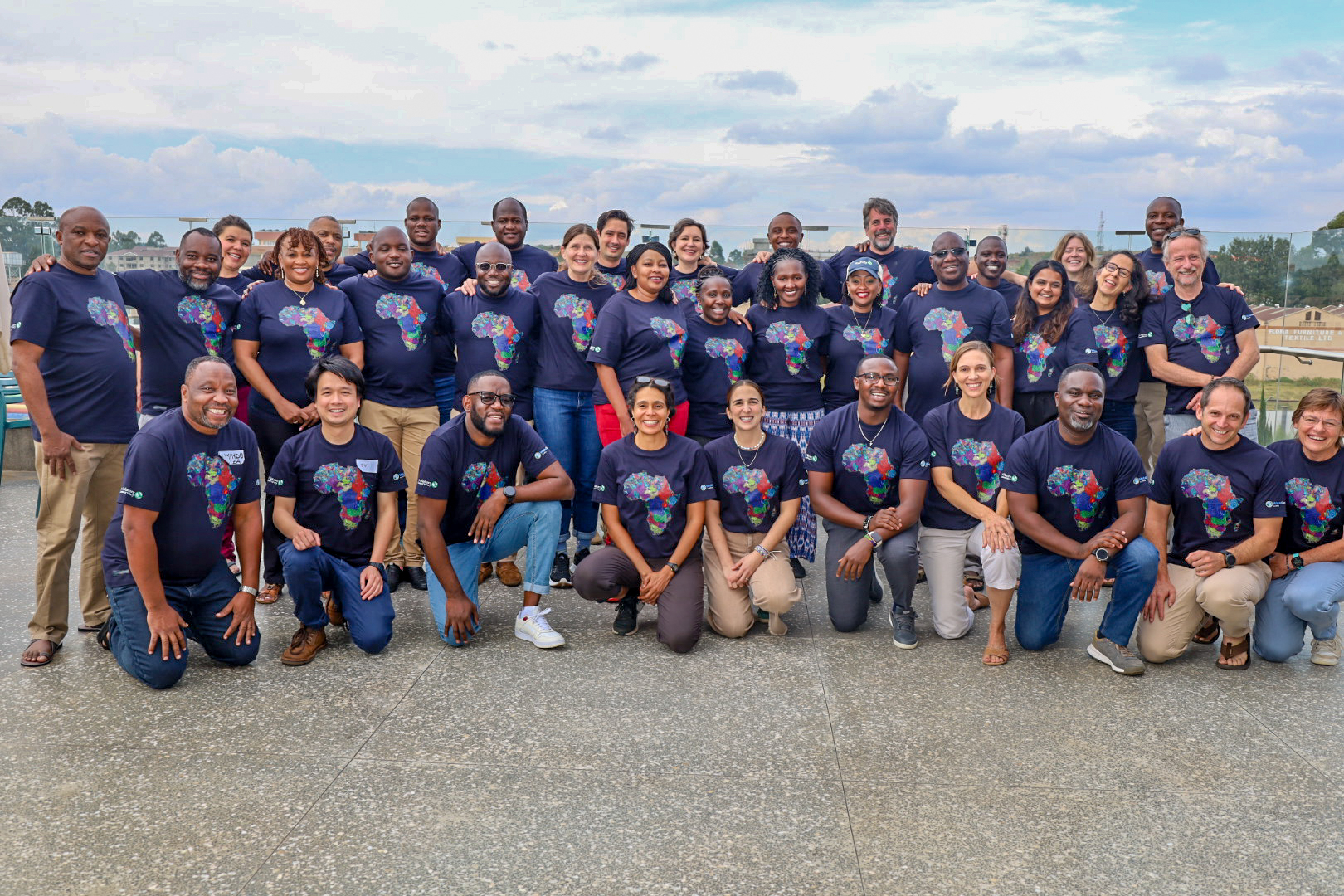Story by Faith Esika
For generations, the Ogiek people have been master beekeepers, harvesting honey deep within the forests they call home. But as times changed, so did their challenges. Unsustainable log hives and policy decisions to exclude people from residing in public forests they once called home contributed to a fading connection to their traditional craft. To strengthen this long-standing heritage, the Eldoret-Iten Water Fund (EIWF) in partnership with the Ogiek Community launched the Ogiek beekeeping workshop in early 2024, a space that blends traditional knowledge with sustainability ensuring that beekeeping not only remains as a livelihood but a legacy too. EIWF constructed the facility, provided materials, and facilitated training, but it was the Ogiek themselves, keepers of ancestral knowledge, who led and continue to lead the way.
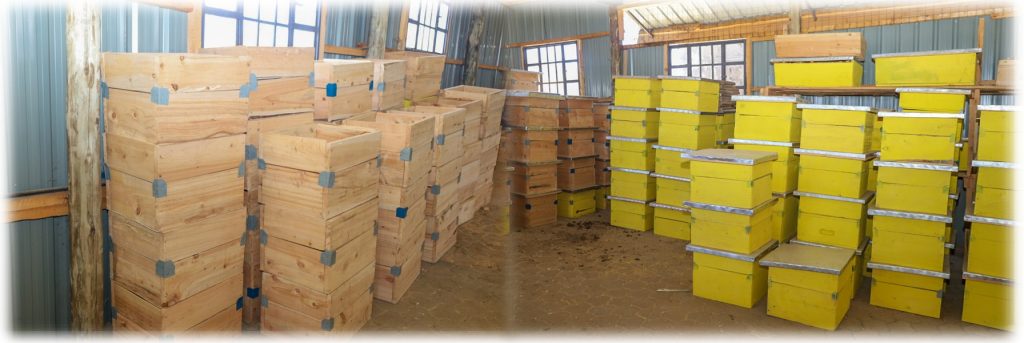
Now, they craft two types of hives: the Langstroth hive that allows three harvests a year and the Kenya Top Bar Hive (KTBH) that allows two harvests in a year. The goal? 500 bee hives. As of February 2025, they had built 221 hives and trained 43 youth to carry the craft forward. In appreciation of the work the community has done, the county government of Uasin Gishu stepped in to provide honey processing equipment, further empowering the community. Nature, too, is thriving in this transformation. Bees play a crucial role in safeguarding forests by deterring illegal activities such as tree logging.
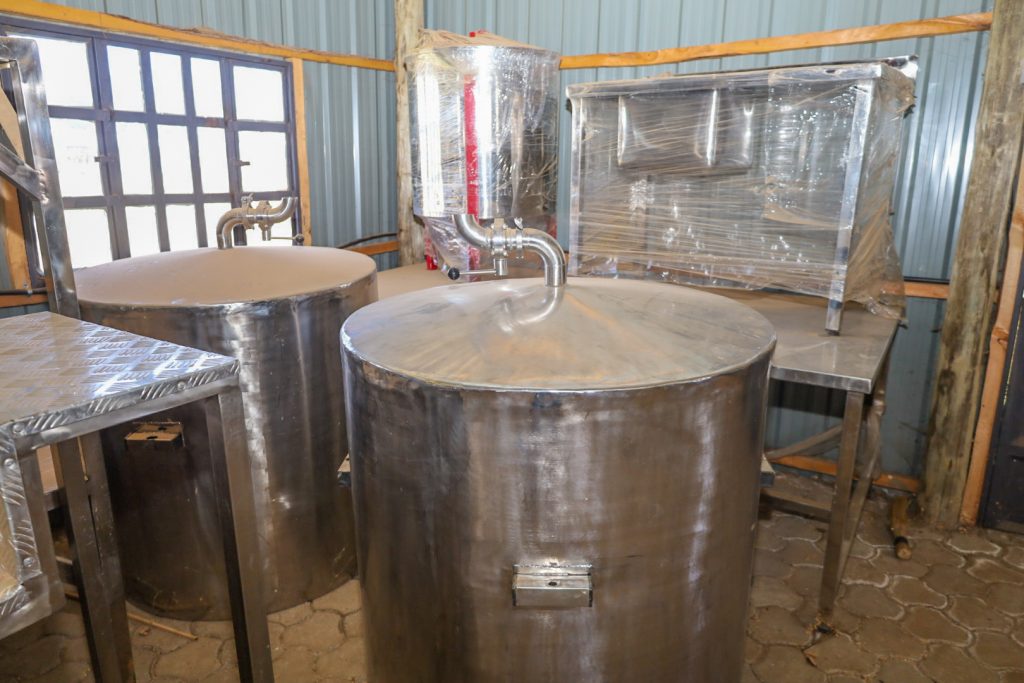
In Cengalo Forest, part of the Ogiek’s ancestral home, 1,500 operational hives, authorized by the Kenya Forest Service, already stand as silent guardians of the land. More than just a project, this initiative is a priority under the Ogiek Indigenous Peoples Action Plan (IPAP), reinforcing the commitment to sustainable livelihoods and indigenous leadership in conservation. The Ogiek are not just making beehives, they are reclaiming their heritage, securing their future, and proving that when indigenous knowledge meets opportunity, transformation happens.

